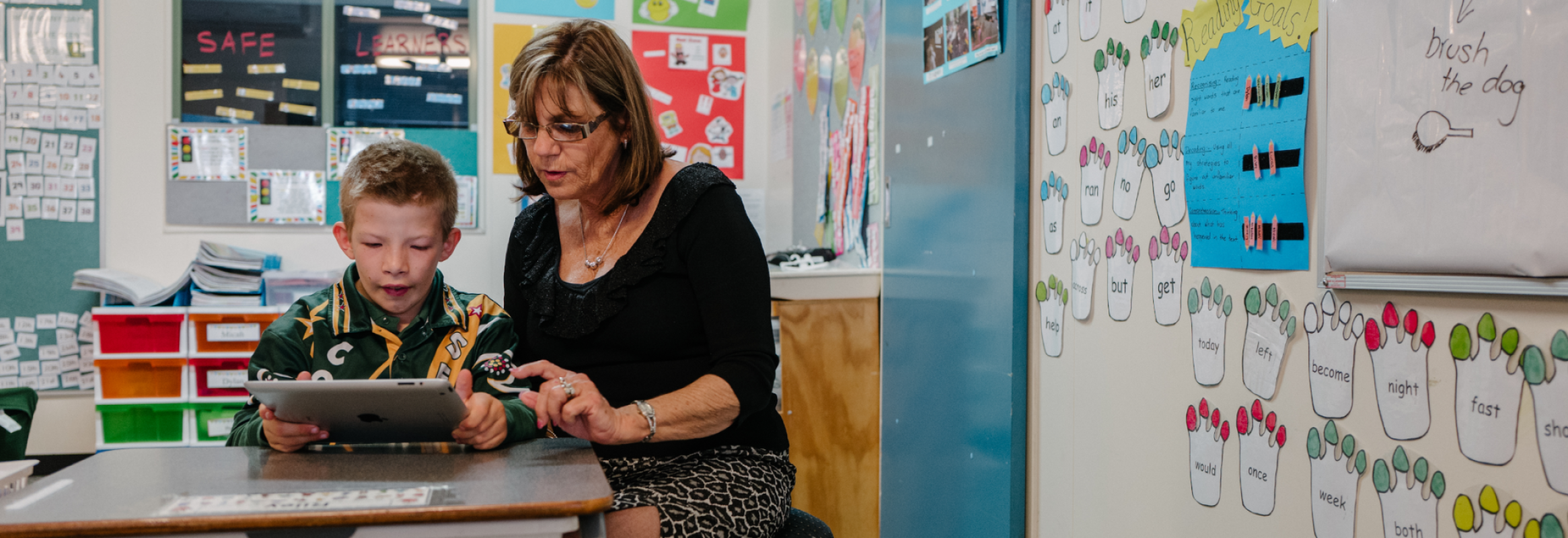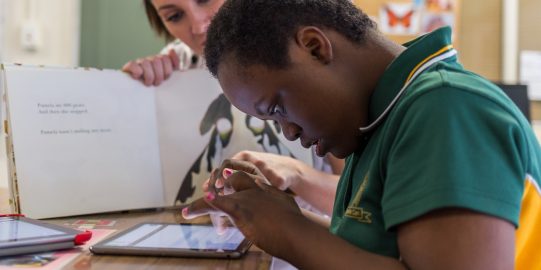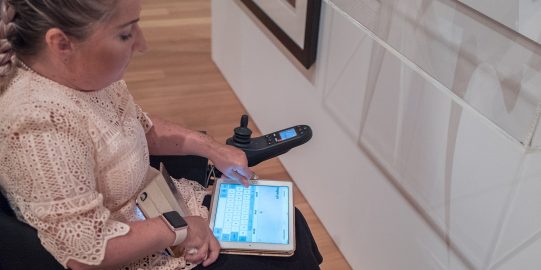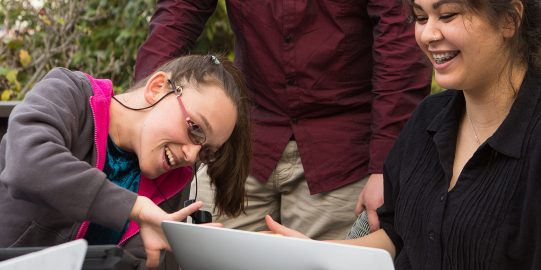Daniel’s sister and disability support staff, and Anna’s doctor are AAC finders. They are the people that got them get started with AAC. People can find their way to more effective communication with AAC via many different paths. Many people who use AAC report that they only found out about AAC through a coincidental meeting with someone who happened to use the technology or to be knowledgeable. Therefore, an AAC finder could be crucial in this process; to help it happen and help it happen early.
No AAC finder
Daniel and Anna were lucky to have an AAC finder. Not everyone has this. In interviews with AAC users, we found that many people did not hear about AAC from someone who had the power to refer them for professional support. Instead, it was often a chance encounter with a helpful nurse, acquaintance or another AAC user that led to discovering AAC. Sometimes a friend or family member found a story of someone else using AAC. The people we interviewed often had no formal AAC assessment or expert support to find the AAC that fit them best. They often spent scarce resources on apps that were not helpful before finding the ones that were.
What happens when there is no-one to help discover AAC for a person who cannot rely on their spoken language? They often make a late start on AAC. The person can experience years of communication failure and frustration. They could become socially isolated and disconnected. If the person has a disorder that is progressive, early adoption of AAC is often crucial to ensure the person can continue to communicate as their symptoms worsen. AAC delayed can be AAC denied.
“Access to AAC is very unlikely to inhibit speech. The alternative - not having an AAC finder and only being exposed to parents/professionals who are endlessly focused on ‘fixing’ speech, constantly pushing for more and better speech - can be frustrating and boring and even just lead to lower self-esteem from the constant message that they’re doing it wrong. An AAC finder instead validates diverse communication needs and doesn’t fall into the trap of only pushing speech, but letting it potentially exist alongside a range of methods.
It just feels like someone telling you to screw something together (ie communicate) while the only tool they give you is a hammer (speech). They nag at you, saying you should be able to apply the screw if you just get enough practice or try harder or hold the hammer differently or whatever, ignoring that for us hammers simply don’t accomplish the task of screwing things together. AAC finders leave the hammer next to us in case we decide we want it but also give us screwdrivers - of all shapes and sizes and handle types - so we can decide what’s going to work best.”
~ endever* corbin, AAC user
Who can be an AAC finder?
Potential AAC finders are everywhere! They may be professionals who are in a position to consider the person’s current communication needs and make a referral or recommendation for AAC. They connect the potential AAC user with the formal supports (such as an AAC assessment).
Some examples of AAC finders include:
- Clinicians: doctors, pediatricians, rehabilitation staff, physiotherapists, occupational therapists and even speech therapists or speech-language pathologists with less experience in AAC
- Educational teams: teachers, school counsellors and psychologists, educational assistants, principals or school leaders
- AAC users and advocates
- Family: parents, siblings or spouse
- Friends or peers, in the community or online
- Disability support organizations, case managers, and vocational rehabilitation agencies
Do it yourself






